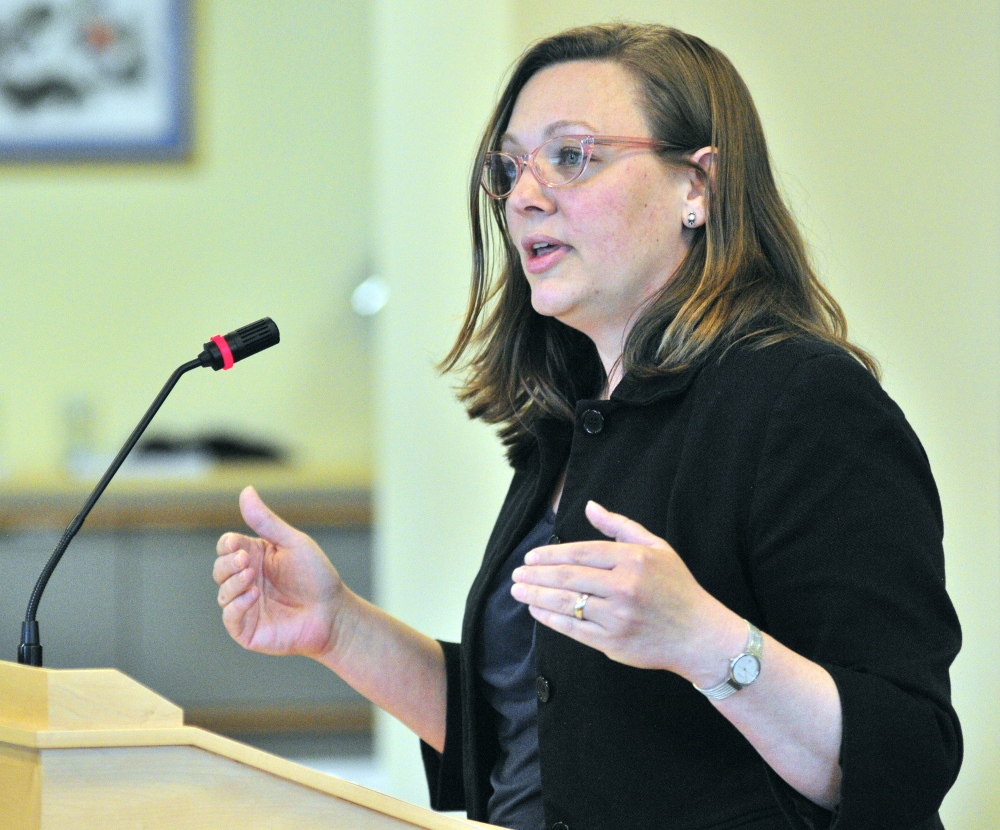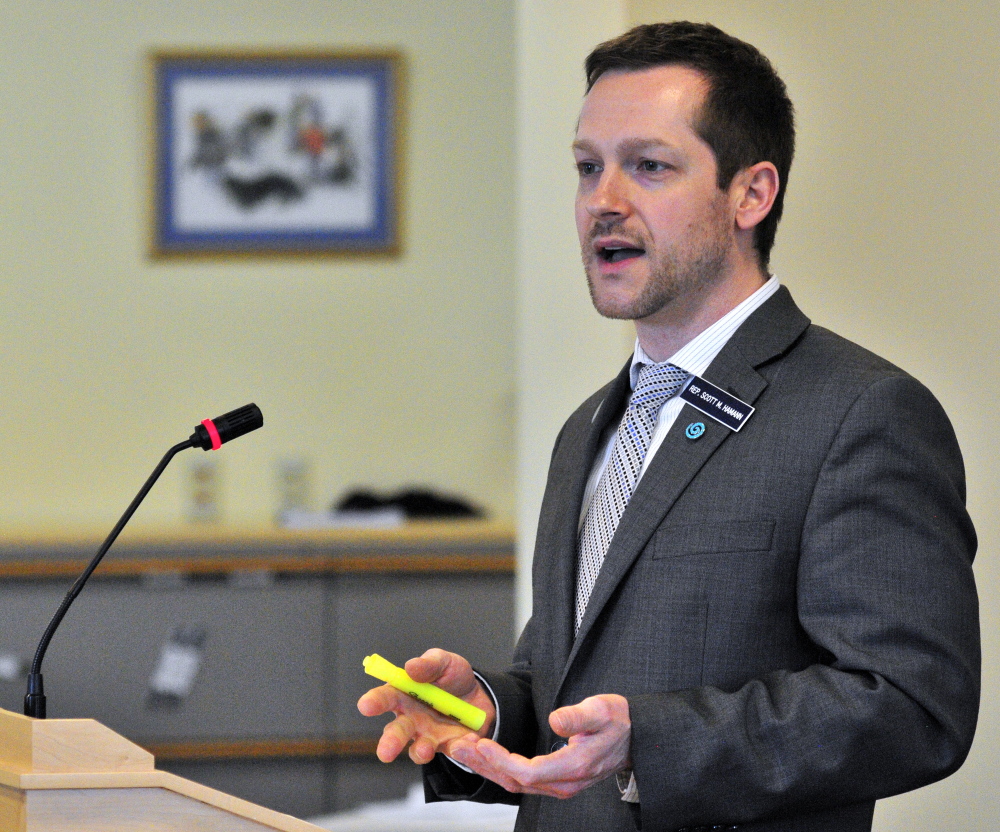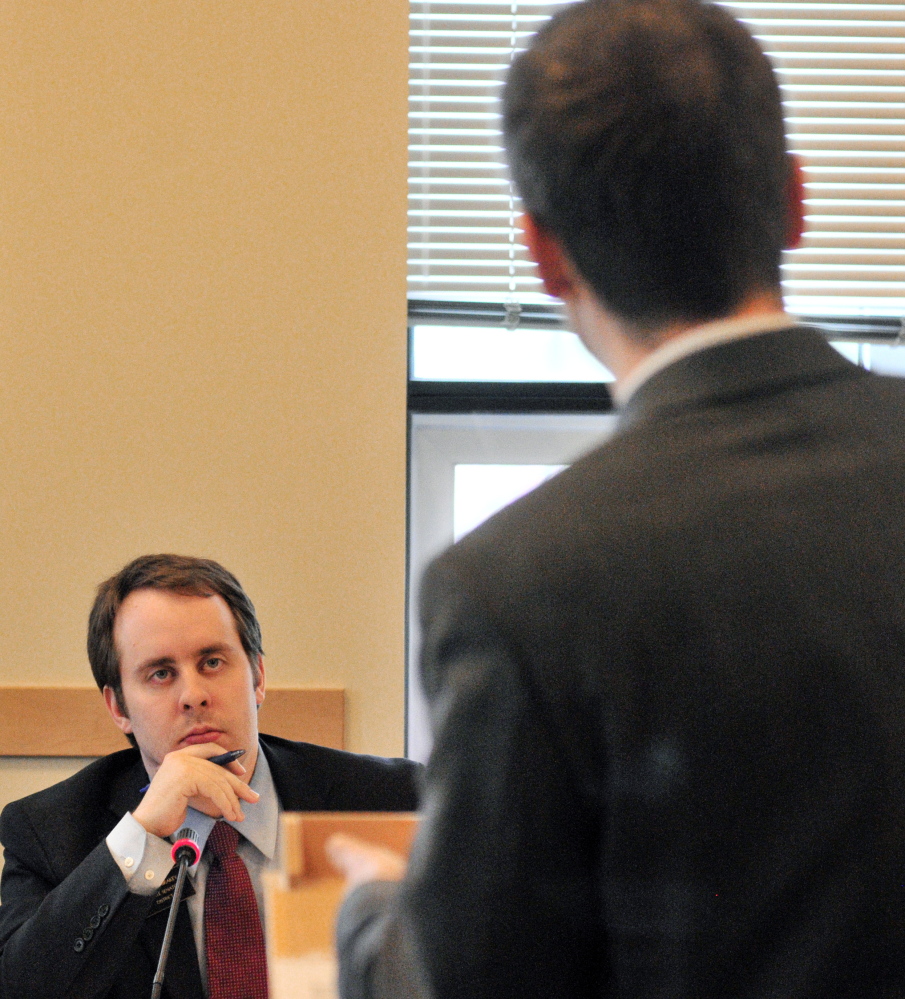AUGUSTA — Leah Bruns sends her two foster children – one of whom she and her husband have adopted, the other she hopes soon will be – to a day care center in Greater Portland.
It’s among the most expensive in the area, but it works for Bruns’ family. She said she doesn’t see anything wrong with providing children who were taken from abusive homes the best day care possible.
A bill in the Legislature would require the state Department of Health and Human Services to fully fund that care.
Currently, the Brunses have to pay $500 per month out of pocket for day care because DHHS has cracked down on enforcing a cap on the subsidy provided to foster parents for day care.
Bruns testified before the Health and Human Services Committee on Friday in support of the bill, which would require the state to pay 100 percent of day care for foster children, saying she’s not sure she and her husband can continue to foster without a subsidy that fully covers the cost. The options would be to move the children to another facility – no small feat given the waiting list at many Portland area day care centers – or to stop being foster parents, which they don’t want to do.
The debate over subsidies comes at a time when DHHS has made an aggressive public plea for more foster families.
In late March, the department said there was an immediate need for about 100 foster families, especially for children between the ages of 11 and 18. Currently, 1,994 children are in foster care statewide, an increase from 1,506 in March 2012, according to DHHS.
“Unfortunately, the number of children in need of safe, healthy, and happy homes is far outpacing the number of families willing and able to help them,” DHHS Commissioner Mary Mayhew said at the time. “Every child in Maine deserves a good home and DHHS is asking for the public’s help in making it happen.”
Rep. Scott Hamann, D-South Portland, said he sponsored the bill because the rate set by the state simply does not work for Greater Portland, where weekly day care rates for infants average between $250 and $300.
The current maximum subsidy for center-based day cares in Cumberland County is $225 per week for an infant, $215 per week for a toddler and $187 per week for preschoolers. For home-based day cares, the rates are $160 for infants, $155 for toddlers and $150 for preschool students.
The state pays for day care expenses at a rate set by a market study conducted every three years, but it varies depending on location. A family in Cumberland County would get a higher reimbursement than a family in Piscataquis County, for example.
Hamann’s bill would simply let foster families choose a day care that works for them and the state would pay the bill.
DHHS spokesman David Sorensen said in an email this week that “Rep. Hamann’s bill is born out of complaints by one of his constituents who wants to be able to send a foster child to one very specific high-end day care.”
Bruns agreed with that assessment, but was unapologetic about wanting to send her foster children there.
ALREADY ‘AT GREAT RISK’
“I believe foster children deserve the best quality care available. They already come to us at great risk,” she said.
If they had to move one of her children to another facility, Bruns and her husband would have to deal with two separate drop-offs and pick-ups, assuming she would be able to find a spot at another day care center.
Added Hamann: “Why necessitate another transition for these already vulnerable children?”
Andrea Jellison, who has been a foster parent for three years in Greater Portland and has taken in 16 children in that time, said the department’s enforcement of the subsidy cap has been a significant challenge for her financially.
“I chose to become a foster parent to help children in need,” she said.
Mark Dalton, associate director of child welfare services at DHHS’ Office of Child and Family Services, testified Friday that the department was neither for nor against the bill, but said it would have a fiscal impact.
The state paid $3.7 million to roughly 1,200 foster parents for child care in 2014, Dalton said. That could increase by an additional $1.5 million if the bill were to pass.
But Sen. Anne Haskell, D-Portland, asked how that increase was possible, since DHHS workers in Portland already had been waiving the cap for some families, a cost reflected in 2014 expenditures for the program.
HIGHER COST IN PORTLAND
Dalton was not able to answer that question. He did acknowledge the higher cost of day care in Greater Portland, saying that Maine ranks 10th for least affordable center-based child care.
Sen. Eric Brakey, R-Auburn, the co-chair of the Health and Human Services Committee, was surprised that Portland-area day cares were so expensive.
“Maybe Portland shouldn’t be lumped in with the rest of the county,” he said, referring to the subsidy rate.
Other committee members, however, were less receptive to increasing day care payments.
Rep. Deborah Sanderson, R-Chelsea, who has been a foster parent herself, said department resources are scant and foster families already get a daily stipend in addition to their child care subsidy.
The bill faces a work session in the coming weeks before the committee votes on whether to recommend it to the full Legislature.
Send questions/comments to the editors.






Success. Please wait for the page to reload. If the page does not reload within 5 seconds, please refresh the page.
Enter your email and password to access comments.
Hi, to comment on stories you must . This profile is in addition to your subscription and website login.
Already have a commenting profile? .
Invalid username/password.
Please check your email to confirm and complete your registration.
Only subscribers are eligible to post comments. Please subscribe or login first for digital access. Here’s why.
Use the form below to reset your password. When you've submitted your account email, we will send an email with a reset code.